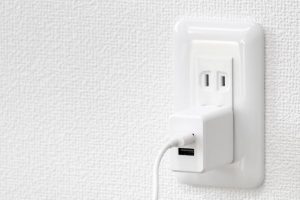Science fiction writers have been predicting smart homes for over a century — since E.M. Forster’s 1904 novel “The Machine Stops” predicted we would only talk to each other via screens or when “The Jetsons” depicted helpful robots doing household chores. With Black Friday and the holiday season rapidly approaching, you might be eying a few tempting smart tools to add to your budding home system.
However, before you start lusting after the brand-new Amazon Echo Show or Philips’ latest smart light starter kit, you should know that there are a few smart home tools you should start with to ensure your system runs efficiently and securely. Here are the most important smart tools to put at the top of your shopping list.
Device Manager
Smart devices are a bit like potato chips — you can’t have just one. However, the more smart devices you buy, the more difficult it becomes to manage all of them. If you have dozens of devices around your home, manipulating each of them with a discrete app could be much less convenient than having an old-fashioned, non-smart home.
That is, unless you have a smart device manager. Device managers are tools that connect to the same network as your smart home tech and help you manage them from one straightforward portal. Often, managers will also track the availability of updates and alert you to security patches to keep your home network safe. Though it might not be the flashiest smart device, a manager is a must.
Energy Monitor
All smart devices run on electricity, whether they require intermittent charging or constant connection to an outlet. Unfortunately, even when an electrical device isn’t in use, it pulls power — a phenomenon long called energy vampirism. Your smart home could be utilizing an above-average amount of power, raising your energy bills and harming the environment for little reason.
That’s why it is good to have a smart energy monitor attached to your network from the get-go. Energy monitors will give you greater insight into how your home is consuming energy, perhaps even notifying you to dangers, like a broken appliance that is pulling much more power than it should. By using an energy monitor, you can gain more control over your smart home, making it as efficient as possible.
Flood Sensor
When you have so many devices in your home that rely on electricity, the last problem you need is water damage. Unfortunately, homes often experience water damage, sometimes from a leaky pipe in the wall, sometimes from a busted water heater or HVAC and sometimes from improper drainage in the surrounding property.
Water can kill smart tech fast, so the sooner you know that your home might flood, the better. A smart flood sensor detects the levels of moisture in the air and on the ground, sending you warnings when water seems to be getting high. Again, flood sensors aren’t as sexy as some other smart tech, but they will keep your home exceedingly safe.
Outlets
Smart technology isn’t cheap — and for good reason. It takes time to engineer a device with unique functionality that includes firmware that can be controlled from near or far. Still, it will take time and a good amount of your budget to swap every single item for something smarter. 
An excellent hack for rudimentary control over some devices is using smart outlets. Smart outlets might not allow you to control every facet of your device — for instance, you can’t change the brightness or color of your lamps plugged into smart outlets, but you can turn your lamps on and off without getting up. Smart outlets area workaround for devices that don’t yet have smart counterparts — or a more affordable trick to raising the intelligence of devices you can’t yet afford to replace.
Currently there are smart egg trays, which tell you when you are getting low on eggs and need to buy more. There are smart silverware, which tell you how fast you are eating and at what times you enjoy your meals. There are even smart toilets, which raise and lower the lid, warm the seat and provide other services for you. You should pick and choose whatever smart devices fit in your home — but you should remember that more functional smart tools are worthwhile, too.
